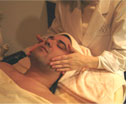|
 |
The Basali' Dermal Institute is focused on increasing the career and earning potential of students by broadening their expertise.
Nail Technology & Clinical Aesthetics
A multitude of career opportunities await those who pursue professions in the beauty and wellness industry as clinical/medical aestheticians, massage
therapists, and manicurists. Some of the disciplines listed below may require additional education. |
| Facials |
Makeup Artistry |
| Clinical Skin Treatments |
Manicuring |
| Hair Removal |
Pedicuring |
| Spa Body Treatments |
Artificial Nails |
| Aromatherapy |
Aesthetics Instructor |
| Hydrotherapy |
Spa Owner |
|
The American market is in the midst of a vast transition from an industry-centered economy to one that is service-centered. This transition accelerated as Baby Boomers began
reaching the peak of their earning potential. Increased disposable income combined with a better understanding of the importance of whole body wellness will continue to positively impact the growth of the hospitality industry and, therefore, the need for beauty and skin wellness experts. However, with that growth stabilizing, competition among qualified therapists will tighten.
As reported in the ISPA 2004 Spa Industry Study:
- The number of spa locations continued to grow between the 2002 and
2004 studies at an average annual rate of 12%. The growth rate in the
number of spas has gradually moderated since its peak at 51% in 2000.
Between 2002 and 2004, the medical spa segment expanded faster than
any other segment, with the number of medical spas growing by 109%
compared to 26% for the U.S. spa industry as a whole. Resort and hotel spas
have also grown faster than the industry average.
- Aggregate industry revenue growth has moderated over the last couple of
years. Between 1997 and 2001, aggregate revenue was doubling every
two years. However, in 2002 the industry saw a more moderate growth
rate of 6.5% bringing industry revenue to $11.4 billion. This growth rate is
more in line with what other key leisure industries experienced in 2002 and
is more sustainable over the long term. In 2003, the spa industryís $11.2
billion in revenue represents a slight decline of1.8%.
- Employment in the spa industry has remained relatively stable since 2001,
fluctuating between 254,000 and 282,000 employees.

|
|
